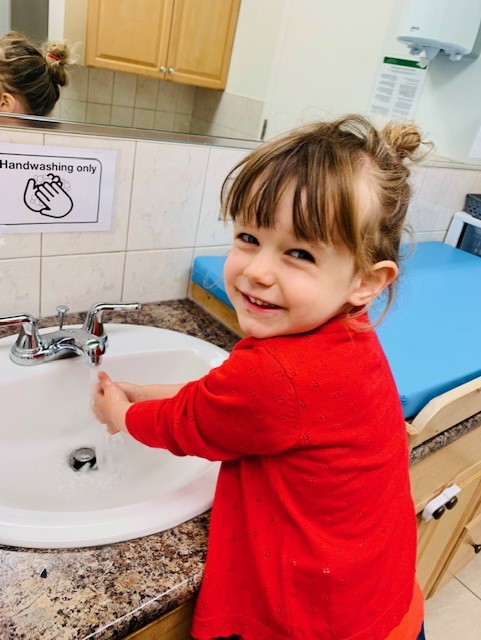Daycare during a Pandemic: What Does Engagement Look Like Now?
Leading up to the days prior to re-opening daycare following the pandemic closure, we all had so many questions and fears of the unknown. As educators, we want to do our best to create an environment that keeps children physically safe and healthy. Parents may have question too because although they may trust their educators and caregivers, the situation is new to all of us. But the question remains for all, how do we provide a safe environment according to the guidelines without creating an institutional feel within the classroom?
What does engagement look like now?
Educators and parents often share many common goals when it comes to children. We all want and strive for their overall health, safety, and well-being both at homes and at school. Considering the pandemic, more emphasis has been placed on physical health for obvious reasons. But now that we have some experience implementing these new health guidelines, we have also gained some confidence to provide a broader sense of well being for each child that extends beyond just the physical well-being.
Social Interactions
After months of being house bound with limited interactions with friends, family and the community, children have now returned to daycare. For many children, this may be the only place they go other than their home. This means that the time spent with educators and peers becomes even more precious. These social interactions are critical to the child’s emotional well-being.
Responsive Educators and Peer Interactions
How do we create a warm and inviting environment for children? Firstly, the presence of a sensitive and responsive educator is the most important part. Secondly, the social interactions between peers play a pivotal role in the child’s environment and their own social development. Children can interact with each other throughout the day within a space that has a limited number of children and that allows for physical distancing during higher risk times (such as sleeping and eating times). Children—especially young children—need quality time with their educators and other peers.
Routines
We create a safe physical and emotional environment by following routines. Routines are so important to a child’s well being. This is something that most children lacked during their time at home during quarantine. Knowing what comes next creates a sense of ease and familiarity each day and this helps to build a child’s confidence.
Creative Approaches to Engagement
Creative approaches to staying connected are important while remaining cautious and safe. A sure-fire recipe for happiness is keeping children engaged. Children need ample time to engage in play and other joyful learning experiences such as exercise, mindfulness, and regular routines for sleeping and eating. It is essential to both children’s emotional and physical well-being.
Verbal and Non-verbal Communication
As educators, we find moments to use powerful words to acknowledge children. These words can convey affection, compassion, and encouragement. We also use eye contact, smiles, hand gestures, signals, and other forms of non-verbal communications to stay connected with the children.
What we know is that creating a sense of belonging, engagement, well-being, and expression creates a foundation for learning.
Speech/Language: Does my child have speech delay?
 Is my child’s speech delayed? This seems to be a question that many parents are asking their daycare teachers in Mississauga and the surrounding area. More and more families are becoming aware of developmental delays and are being proactive in seeking help through daycare centres.
Is my child’s speech delayed? This seems to be a question that many parents are asking their daycare teachers in Mississauga and the surrounding area. More and more families are becoming aware of developmental delays and are being proactive in seeking help through daycare centres.
At Alpha’s Discovery Kids, there are a variety of highly trained Early Childhood Educators with experience and resources to support children ages 12 months to 5 years in all areas of development. Our philosophy centres around being an inclusive daycare environment to provide the best care for children at every stage of their development.
There are numerous resources online to educate yourself on “typical” child development but every child is different. Even as adults, we all have strengths and weaknesses but finding the right resources in order to develop our skills is an ongoing journey of development. In Mississauga and the Peel Region; there are several programs that can help you and your family with speech and language.
Many child development experts agree that the first step to developing your child’s speech and language is to seek a daycare environment that best suits your family. The daycare environment has so many opportunities for genuine peer and teacher interactions that can support your child’s language skills as well as their social interactions. The teachers are trained to provide experiences that allow your child to grow their language skills at their own pace.
The second step is to seek the advice of a resource consultant who can support you and your family at the daycare. In Mississauga, we are supported by a regional program called Peel Inclusive Resource Services (PIRS) which allow the educator and resource consultant to work directly with families to give families available resources, tips and advice to support the child to achieve speech and language goals.
Finally, it is a good idea to speak with your child’s doctor and seek a referral for your child to get a speech and language assessment by a speech and language pathologist. In the city of Mississauga, there are several free resources for every family to give their child the best start in life.

